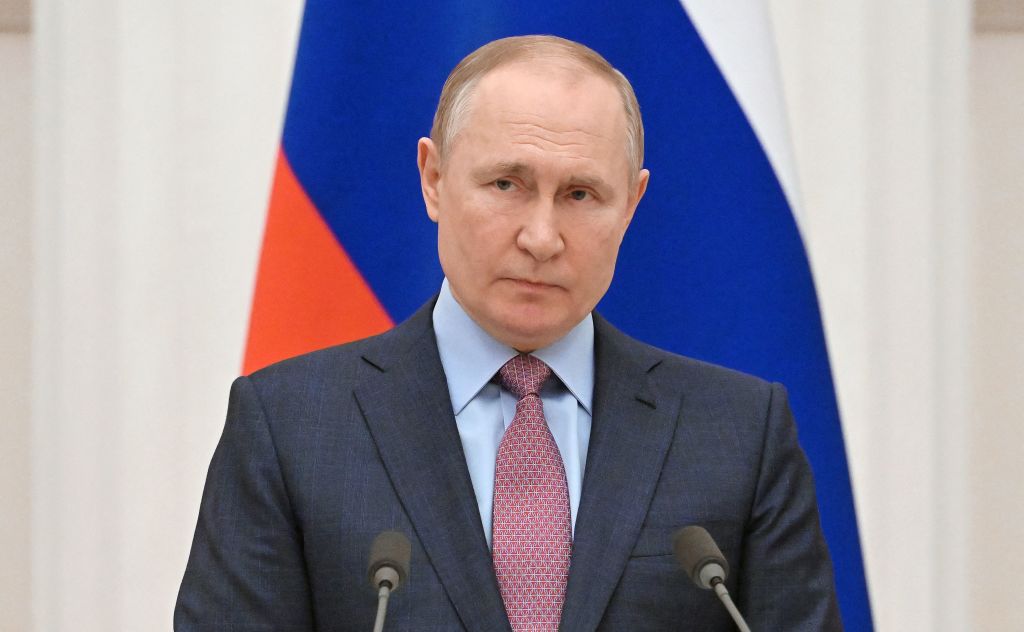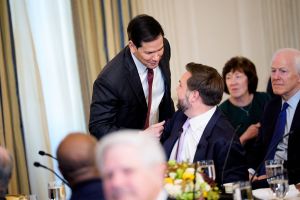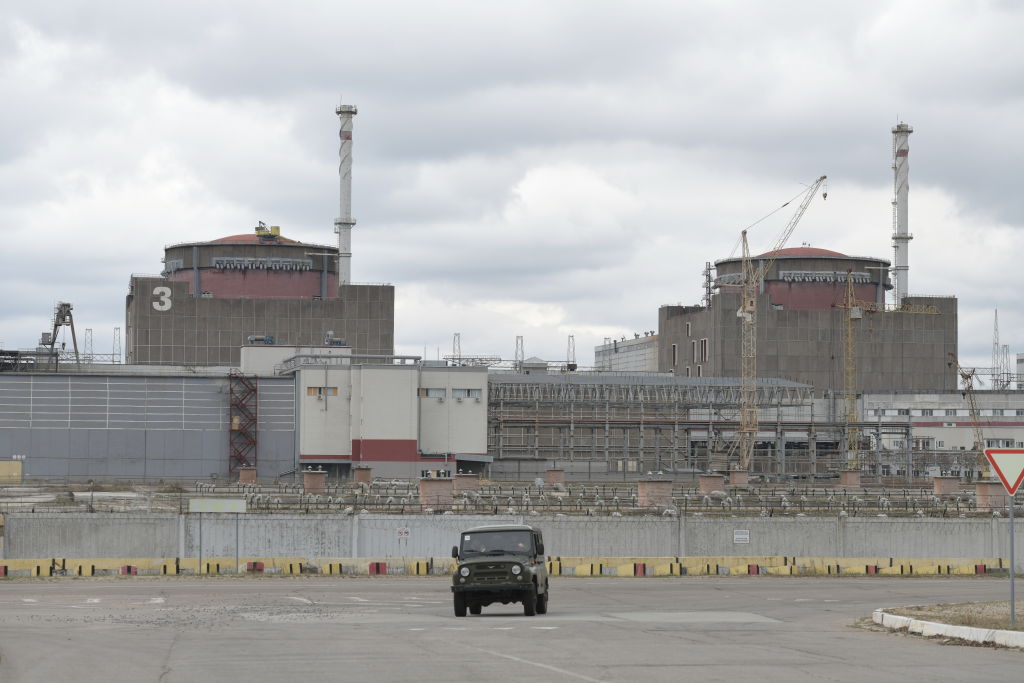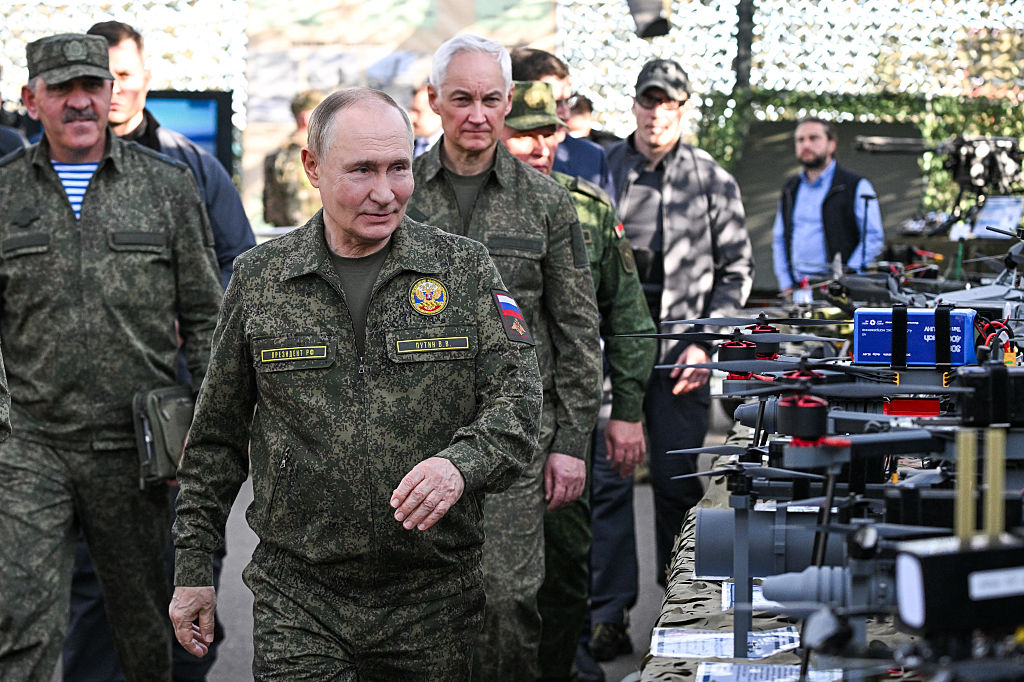Vladimir Putin’s invasion of Ukraine is the best thing to happen to NATO since 1989. No amount of cajoling by American presidents could get the Germans to increase their defense spending to 2 percent of GDP, as the alliance asks.
The Russian president found a way to persuade them. Putin has also persuaded Finns and Swedes that joining NATO is a good idea. Not for the first time, a war is having the opposite of the effect its instigator intended.
Putin may yet get what he demanded from Ukraine and the West right before his invasion. NATO membership may be on the table for everyone else but not for Ukraine. Russia wants its possession of Crimea to be acknowledged by Kyiv, and that too is within Putin’s reach. The last of his demands, independence for the “breakaway republics” of Donetsk and Luhansk, may prove more elusive. Maybe two out of three ain’t bad, as a singer who died earlier this year once said.
The problem for Putin is that he’s purchased these gains at the price of revealing his country to be a Potemkin power. Its forces are hollow, undisciplined, ill-led, demoralized. In terms of military prowess, it turns out that Vladimir Putin’s Russia is still Boris Yeltsin’s Russia.
Putin might well imagine that once a peace deal is reached and the status of Crimea has been resolved Western sanctions will abate. Europe remains dependent on Russian energy, after all. But even the rosiest scenario for the Kremlin’s autocrat is one in which the illusion of Russia as a “great power” has been dispelled. Ironically, the last support that illusion enjoys comes from those in the West who have a habit of inflating threats. These pundits ask what country Putin will attack next, when the truth is that the Russian military is unprepared to defeat anyone but itself. It is not in NATO’s league.
All this has made liberal internationalists in the West feel like the last twenty years never happened: no Iraq War, no Libyan debacle or Afghanistan disgrace, no populists raising doubts about promoting democracy by force. Muscular liberalism and neoconservatism are back — only they’re not. Putin’s inept gangsterism is hardly a substitute for the Soviet threat of old, and Russia’s aggression has done nothing to redeem America’s foreign policy of the past two decades. If anything, Putin has only further illustrated the limits of force. His war is failing for the same reason that America’s campaigns in the Islamic world failed: quite often military power is not enough to quell spirits determined to resist. War must be won at the moral and cultural level as well as the military one.
Short of nuclear war — a possibility that too many pundits have treated glibly — the West has little to fear from Russia. In the Cold War much of the Soviet Union’s power was, perversely enough, moral: the USSR succeeded in aligning itself with the anti-imperialist, anti-Western sensibilities of certain parts of the Third World. The West’s strength in the Cold War was also moral, appealing to the anti-imperialism of the Soviet Union’s own captive nations and satellites. Putin has dabbled in mounting a moral case for his regime by appealing to the anti-liberal sentiments of some on the West’s political right. Such efforts have borne little fruit, despite what liberal media would have us believe.
Critics of liberalism in the West recognize that Putin is not a defender of their civilization or values. The West, by contrast, is still quite capable of appealing to critics of Putin or of Putin-like leaders elsewhere. But there are limits to the West’s, and liberalism’s, moral reach — limits that rule out the possibility of Westernizing or liberalizing the whole globe, or even just Russia itself. During the Cold War, both the West and the Soviets took advantage of anti-imperialism or nationalism to bolster the attractiveness of their ideologies. There was more to their contest than just the intrinsic appeal of Western liberalism or Soviet Communism.
Putin’s old-fashioned Russian imperialism has given NATO, and perhaps liberalism, a boost by reconnecting them with the anti-imperial spirit in Europe. Yet because the moral appeal of Putinism is so limited, and Putin’s military means to pursue imperialism are likewise limited,Western-style liberalism is likely to gain only a proportionately modest and temporary benefit from renewed anti-imperialist sentiments in Europe.
An enemy like Putin is not enough to revive the West’s spirits. Nor is the greater challenge posed by China likely to be enough — not so long as the Chinese refrain from overt conflicts of the sort Putin has embarked upon in Ukraine. The West will also become a Potemkin power, more militarily competent but in its own way as morally hollow as Russia, if it does not look within itself for renewal. The West — especially America — has been applying the power of anti-imperialist sentiment to tear down its own morale in recent years, even as its liberal leaders engaged in liberal imperialism abroad.
The best hope for the West is to rediscover a self-affirming anti-imperialism, not on the multicultural left but on the nationalist right. This is the anti-imperialism of secure borders, economic nationalism, and a foreign policy based on national interests, not liberal ideals. Vladimir Putin’s menace is no substitute for a Europe that cherishes its historic nationalities, or for a United States that is proudly America First.
This article was originally published in The Spectator’s May 2022 World edition.

























